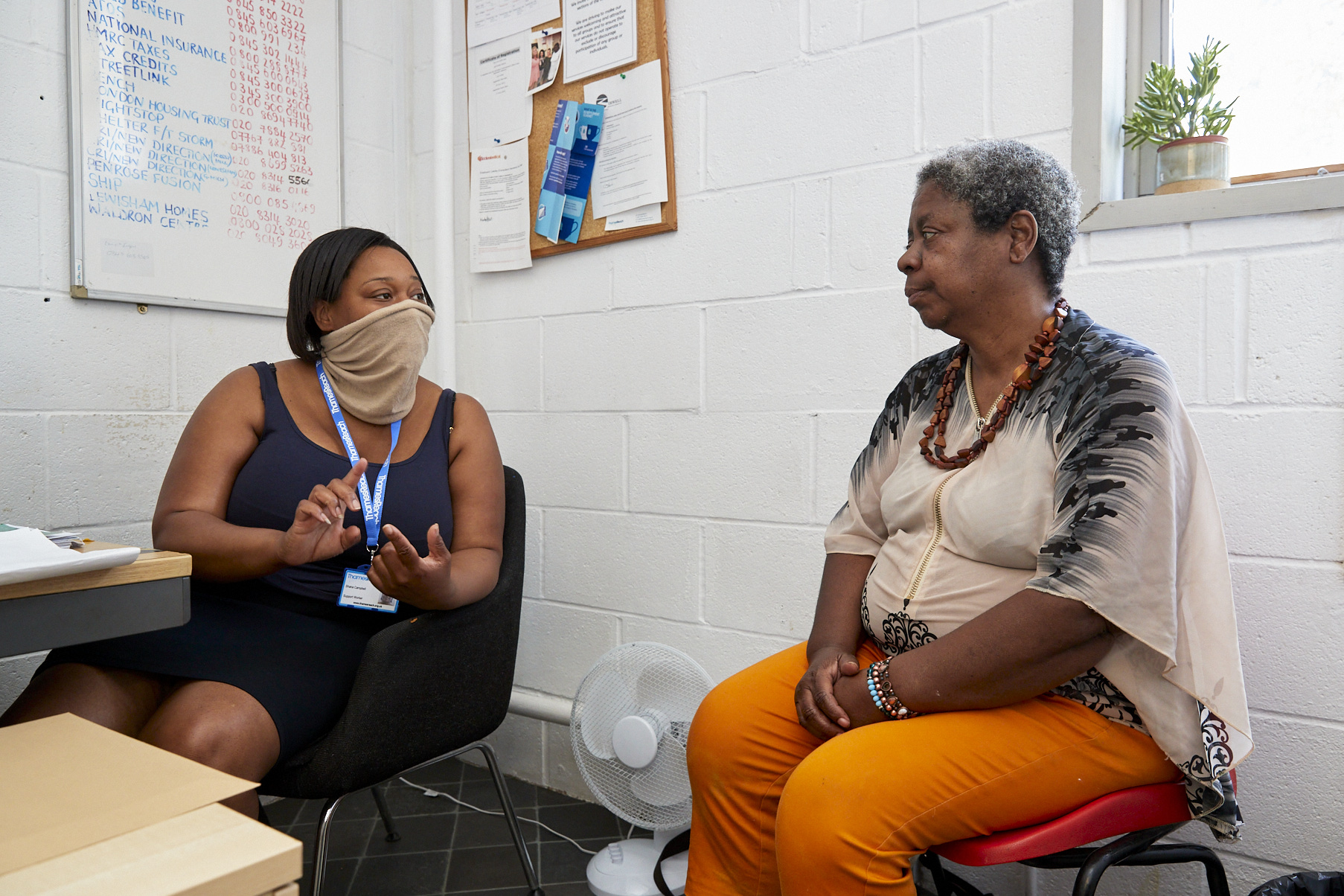Interview: How Deptford Reach is supporting the Lewisham community
Lead manager of Deptford Reach, Jordan, discusses the service’s impact towards ending street homelessness in Lewisham

Deptford Reach has been at the heart of the community in Lewisham for many years. During the early stages of the pandemic, the building had to close, but instead of ceasing services, this became an opportunity to expand beyond the building the team are ordinarily based in, to reach more people in need around the borough. Its lead manager, Jordan, discusses the essential work they do in the community.
In Deptford Reach’s current working model, how are you working with people who have been using your service for a while, and members of the wider community?
At present we have three main areas we focus on: a rough sleepers support hub; advice and case work, and health and wellbeing. The Deptford Reach building provides space and respite for people experiencing homelessness, and there they can access advice and facilities such as showers and laundry. The health part is really important, and once a week we have visits from a dentist, nurse, GP and drug and alcohol support workers. We also help people get access to their own GP practice to help people resettle into their community.
Can you tell us about the prevention aspect of Deptford Reach and how this works?
Prevention is important, and we are always looking for new ways to get to people before homelessness occurs. As part of the advice service, we offer advice and casework in, benefits, debt, arrears, housing advice, tenancy sustainment, homelessness and other general advice. Monday to Friday we are in the building, and members of our team attend food banks across Lewisham as well. From the new year, the centre will be shut on Fridays, with staff based in the women’s sanctuary at the local 999 Club and food banks. We attend a different food bank every day of the week to provide a drop-in advice service. Expanding this service means we can engage with people who would otherwise not come to a building-based service; it definitely makes it more accessible.
Does the service change at all in winter and cold weather?
Our rough sleepers support hub is usually extended for a few more hours to make sure people have the support they need and don’t go into freezing temperatures early in the morning. There is always a bigger demand in winter with added urgency to be accommodated and higher engagement levels. As for this year, the new variant has meant that more people who had been sofa-surfing are coming to us needing advice and emergency accommodation.
As you work with people at different stages of exposure to homelessness (prevention, intervention, recovery), do you find that you are using the Hard to Reach Fund to support people’s move-on journey?
We often have a need for it, widely for people resettling and allowing people to engage, with both us and other networks in their lives. So housing items and furniture, or everyday items such as Oyster cards, phones and credit.
Looking towards 2022, what does the future hold for your work?
We are working with Thames Reach’s Employment and Skills team to offer help accessing education and employment; financial resilience; digital skills, and ESOL (English for Speakers of Other Languages) to people who use our services, whether in the building or in our outreach work. When we work outside of the Deptford Reach base, the community does not lose out on services, and we are expanding our reach of people needing our help. We have a women’s group and an art group at the moment but we’re minimising activities in the building, so we have more scope to reach people elsewhere in the community in different locations. As we’re focused on prevention and sustainment, everything will be based around advice, so we can support people towards independency as much as possible in the long-term. At the moment we are collecting data to see where the needs are in the local community.
